27 July 2024 – Niedersachsen, Germany
Overview
The Jacquelyn Sanders Foundation (JJSF) is committed to advancing sustainable solutions for water filtration. In support of this mission, we are actively engaged in the development of a biological filtration prototype at the University of Antananarivo, Madagascar. Our objective is to demonstrate the feasibility of simple rainwater filtration systems capable of producing drinkable water. This initiative not only addresses immediate water needs but also provides practical training for graduating engineering students, fostering self-sufficiency and hands-on application of their skills.
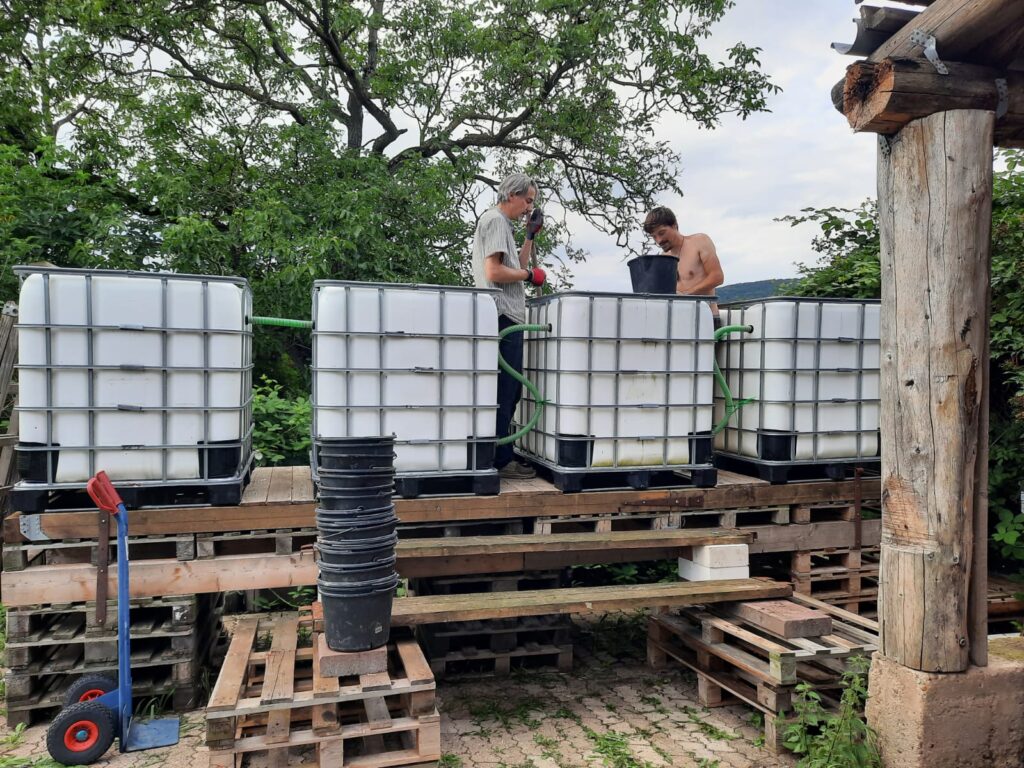
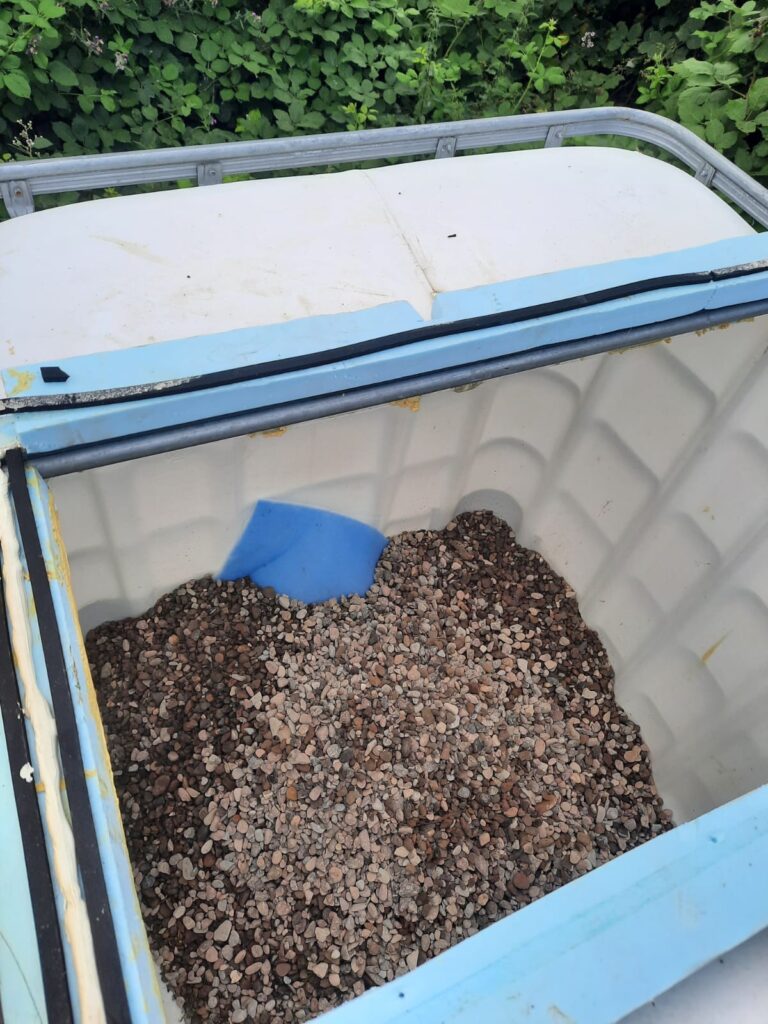
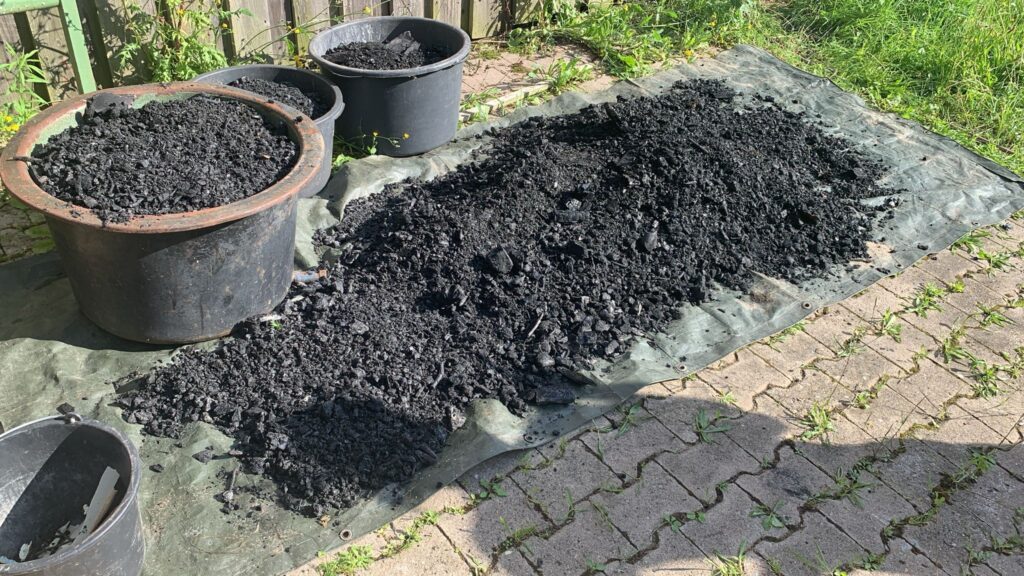
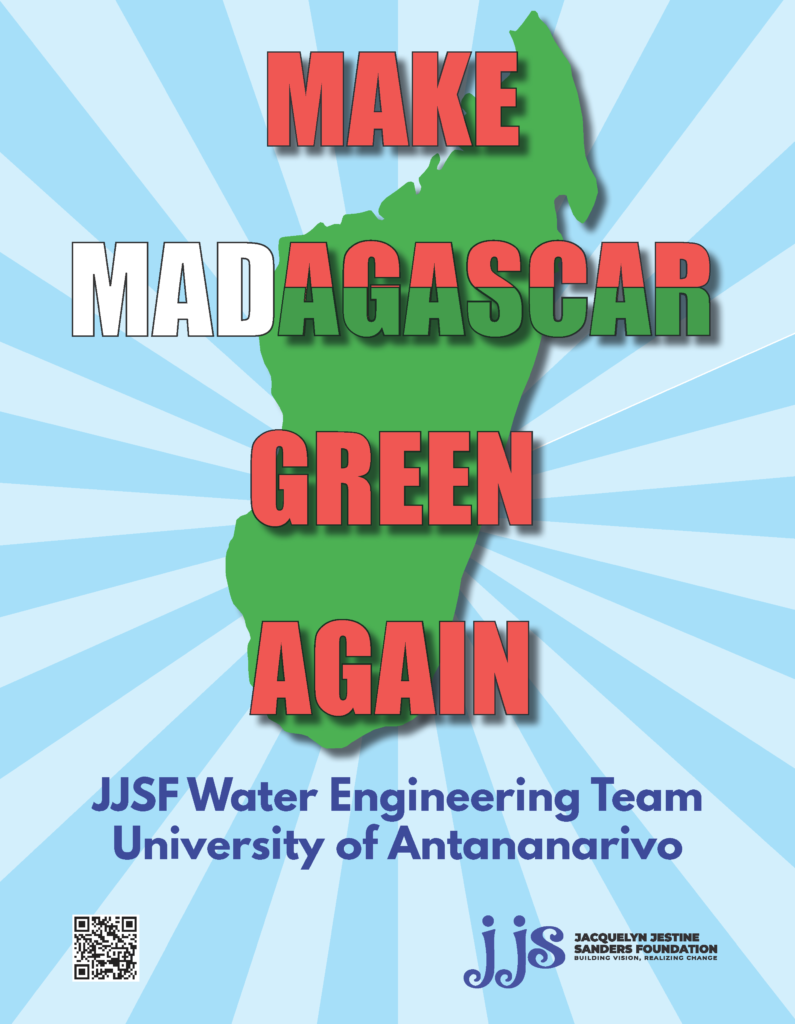
System Specifications
The filtration system under development utilizes:
- Four 1000-liter tanks
- Sand, stone, and charcoal as filtration media
- A potential UV filter for additional purification
- A single 440 Watt photovoltaic panel to meet the system’s energy demands
The system is designed to produce approximately 850 liters of potable water daily, sufficient to meet the drinking and showering needs of a family of eight. The overall cost target for the system is under 1000 euros, making it an accessible and affordable solution for local communities. An additional stretch goal is to provide enough water for washing clothing.
Current Progress in Germany
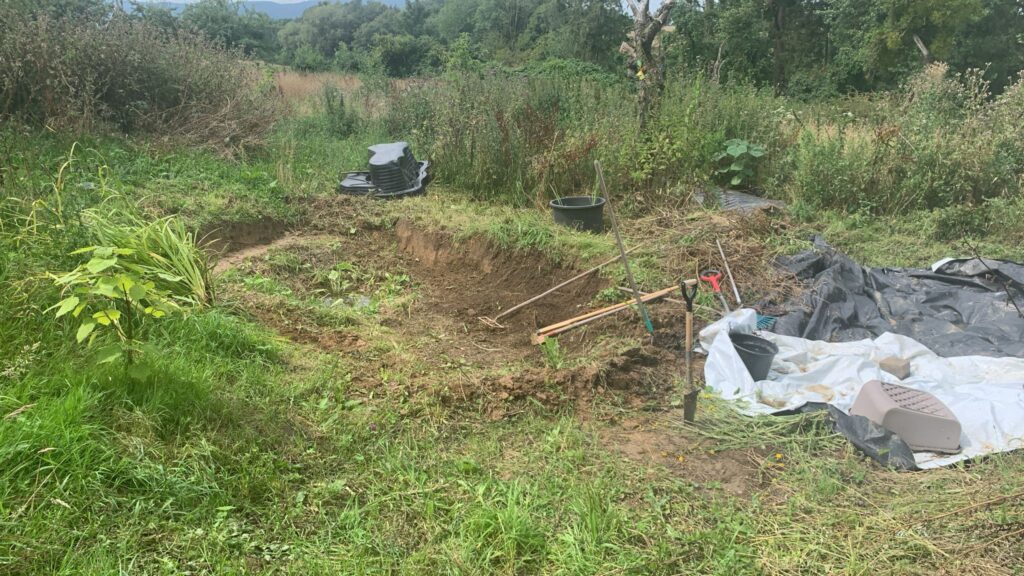
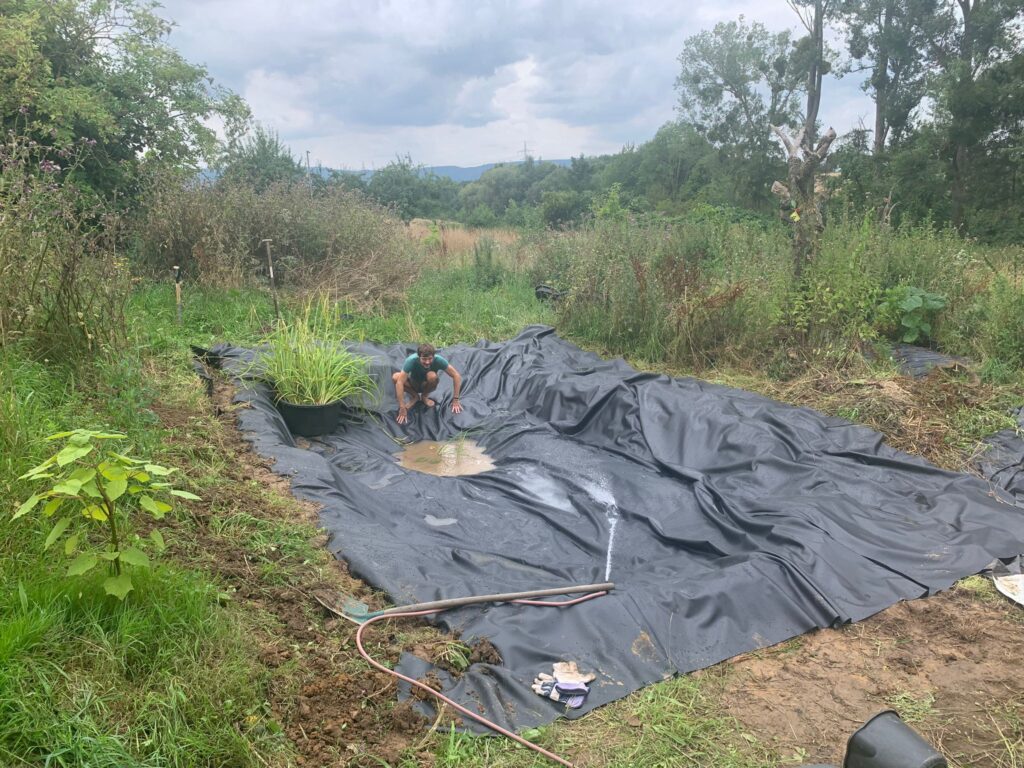
Our team in Germany has made significant strides in assembling and preparing the filtration system:
- Tank Preparation: The four 1000-liter tanks have been connected according to Dr. Joshua Kearns’ method for biological filtration. Sand and stone have been added to the tanks as part of the filtration media.
- Rinsing Operations: The tanks are currently undergoing rinsing operations to ensure the cleanliness and readiness of the filtration media.
- Pond Construction: A pond is being constructed to act as the external storage for rainwater collected from a nearby house. This pond will be part of a series of small ponds designed to attract wildlife and create a small constructed wetland. This will provide continuous rainwater storage, essential for uninterrupted water filtration.
The system’s photovoltaic panel will ensure that the filtration process is energy-efficient and sustainable, highlighting the potential for renewable energy integration in water purification.
Future Plans and Testing
By the end of summer, we expect to begin recording test results from the filtration system. These results will help us refine the design and ensure the reliability and efficiency of the water purification process.
Conclusion
The Jacquelyn Sanders Foundation is dedicated to empowering communities through innovative engineering solutions. Our ongoing project in Germany, aimed at supporting the University of Antananarivo, is a testament to our commitment to practical education and sustainable development. We will continue to provide updates on the filter prototype as we progress through the next stages of development.
We appreciate the support of our fellows and donors, whose contributions make these initiatives possible. Together, we are paving the way for a sustainable and self-sufficient future.
Jacquelyn Sanders Foundation
Doing what we can to guide graduating students towards self-sufficiency and practical use of their engineering training.


